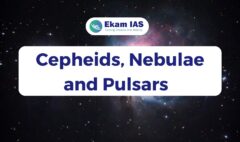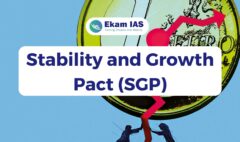The Scheduled Caste Status
November 3, 2022 2022-11-03 14:28The Scheduled Caste Status
- The Centre has appointed a three-member commission, headed by former Chief Justice of India K G Balakrishnan, to consider the possibility of granting Scheduled Caste status to “new persons who have historically belonged to the Scheduled Castes’’ but have converted to religions other than Hinduism, Buddhism and Sikhism.
- The Centre appointed the commission after the Supreme Court of India has sought the most recent position of the Union government on a batch of petitions challenging the Constitution (Scheduled Castes) Order of 1950, which allows only members of Hindu, Sikh and Buddhist religions to be recognised as SCs.
Who all are included in the Constitution Order of 1950?
-
- In exercise of the powers conferred by clause (1) of article 341 of the Constitution of India, the President, after consultation with the Governors and Rajpramukhs of the States concerned, is pleased to make Order and this Order may be called the Constitution (Scheduled Caste) Order, 1950.
- When enacted, the Constitution (Scheduled Castes) Order of 1950, initially provided for recognising only Hindus as SCs, to address the social disability arising out of the practice of untouchability.
- The Order was amended in 1956 to include Dalits who had converted to Sikhism and once more in 1990 to include Dalits who had converted to Buddhism.
- Both amendments were aided by the reports of the Kaka Kalelkar Commission in 1955 and the High Powered Panel (HPP) on Minorities, Scheduled Castes and Scheduled Tribes in 1983 respectively.
- On the other hand, the Union government in 2019 rejected the possibility of including Dalit Christians as members of SCs, rooting the exclusion on an Imperial Order of 1936 of the then colonial government, which had first classified a list of the Depressed Classes and specifically excluded “Indian Christians” from it.
Constitutional provisions related for the protection of SC
-
- Article 15(4) – . It allows the state to enact laws and provisions relating to the advancement of socially and educationally backward classes and the scheduled castes and scheduled tribes.
- Article 16(4A) speaks of “reservation in matters of promotion to any class or classes of posts in the services under the State in favour of SCs/STs, which are not adequately represented in the services under the State’.
- Article 17 abolishes Untouchability.
- Article 46 requires the State ‘to promote with special care the educational and economic interests of the weaker sections of the people, and, in particular, of the Scheduled Castes and the Scheduled Tribes, and to protect them from social injustice and all forms of exploitation.
- Article 335 provides that the claims of the members of the Scheduled Castes and the Scheduled Tribes shall be taken into consideration, consistently with the maintenance of efficiency of administration, in the making of appointments to services and posts in connection with the affairs of the Union or of a State.
- Article 330 and Article 332 of the Constitution respectively provide for reservation of seats in favour of the Scheduled Castes and the Scheduled Tribes in the House of the People and in the legislative assemblies of the States.
- Under Part IX relating to the Panchayats and Part IXA of the Constitution relating to the Municipalities, reservation for SC and ST in local bodies has been envisaged and provided.
UPSC Prelims Model Question
Q. Which of the following statement(s) is/are correct?
- Currently the Constitution (Scheduled Castes) Order of 1950, provided for recognising only Hindus as SCs.
- The report of Kaka Kalelkar Commission in 1955, for the inclusion of Dalit who has converted to Sikhism as SC was rejected.
- Only Part III of the Indian constitution has special provisions related to Scheduled Caste.
Select the correct answer using the code given below:
(a) 1 only
(b) 2 only
(c) 1, 2 and 3
(d) None of the above
To view answer key and much more, Join our Telegram Channel
To get years of subjectwise-segregated newspaper articles, join our subjectwise Telegram Channels.
To watch video explanation and much more, Subscribe to our YouTube Channel
Follow us on Instagram for UPSC updates.
Click here to read more UPSC Current Affairs
Ekam IAS is the oldest online IAS institute in Kerala. We’ve years of experience in mentoring and teaching students all over the nation, helping them achieve their UPSC-dream through the right guidance, strategy, and precise content. Join Ekam IAS and turn your UPSC-dream into reality.
To learn customizable preparation strategies, book an appointment with our UPSC-expert. Book Now.







